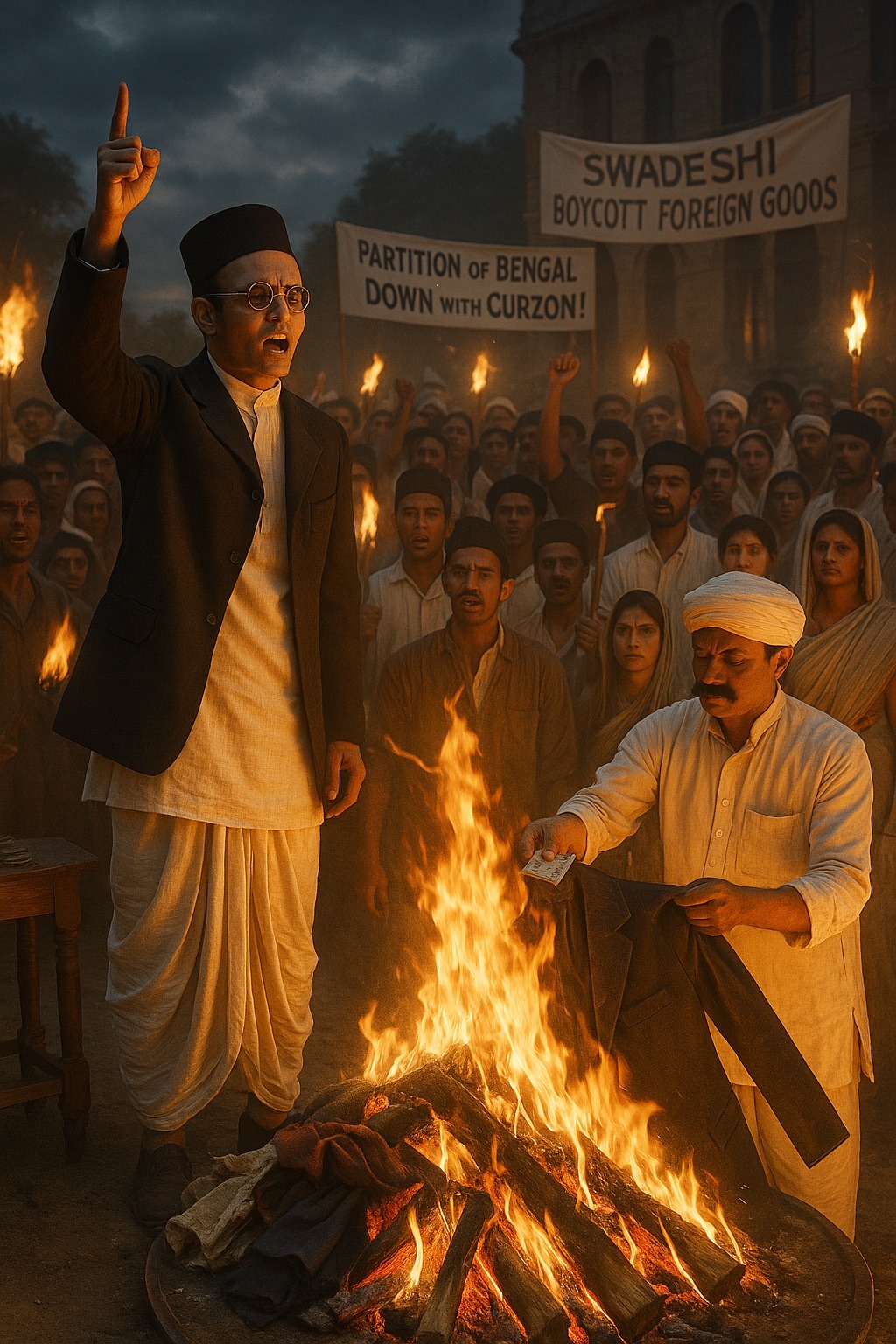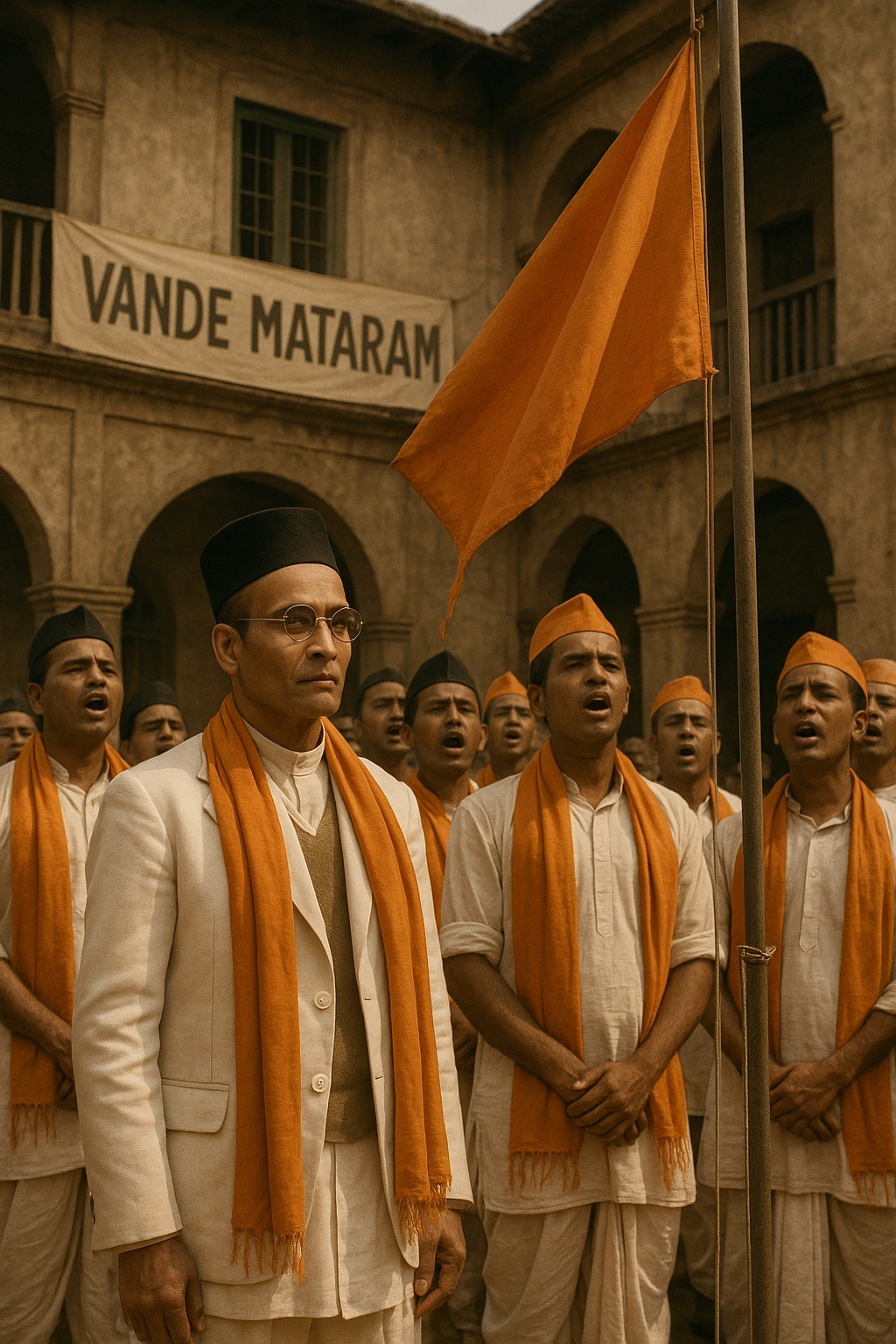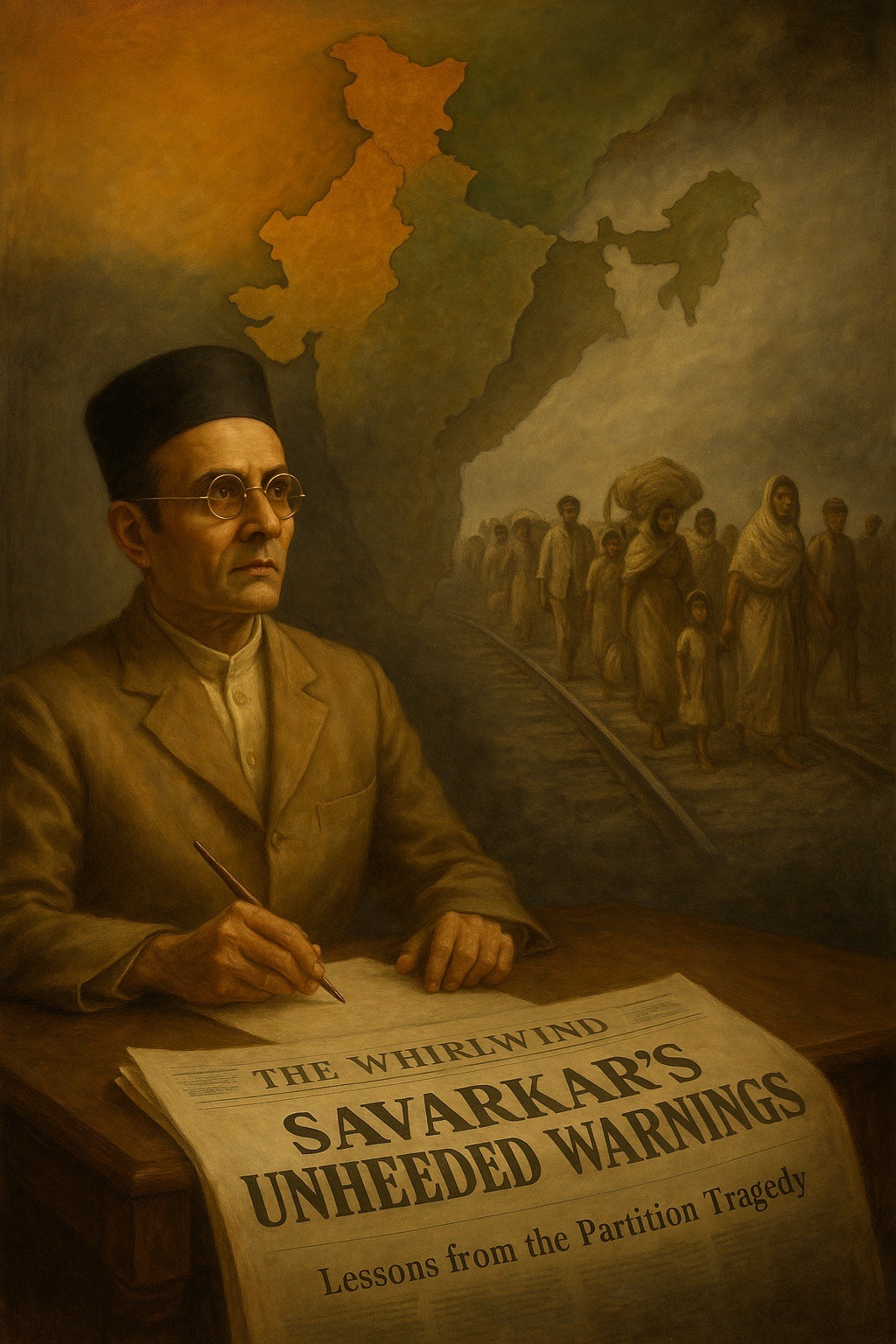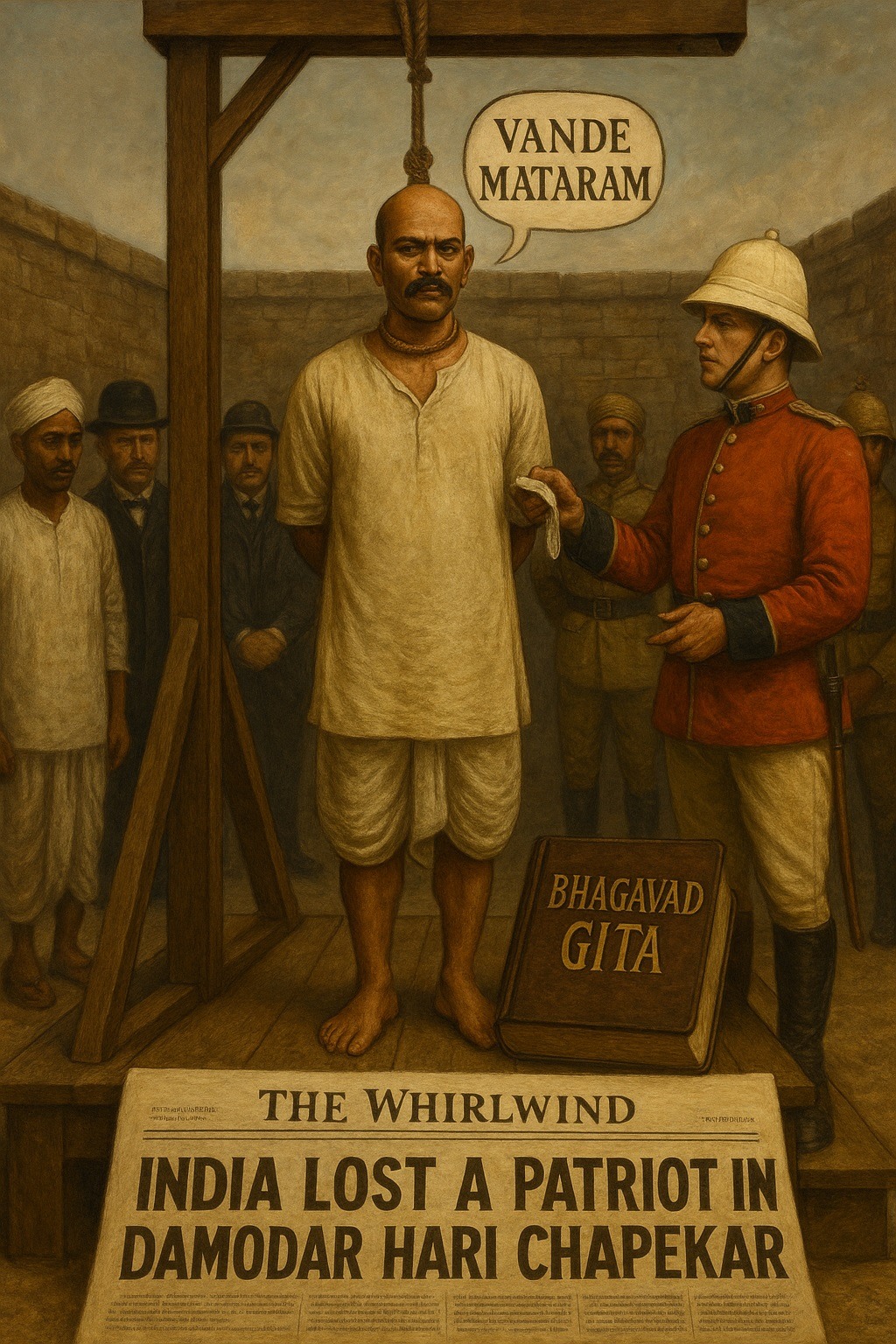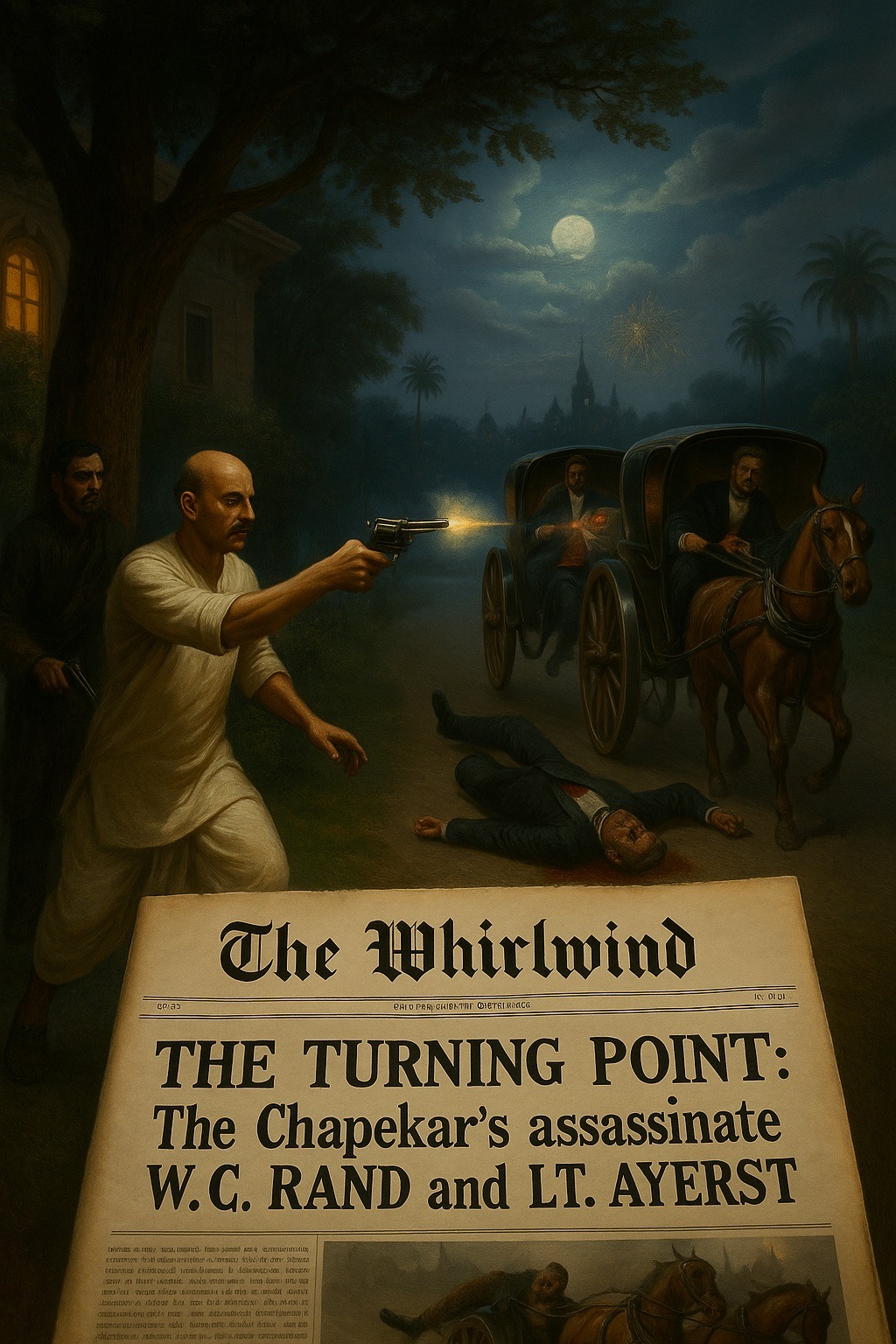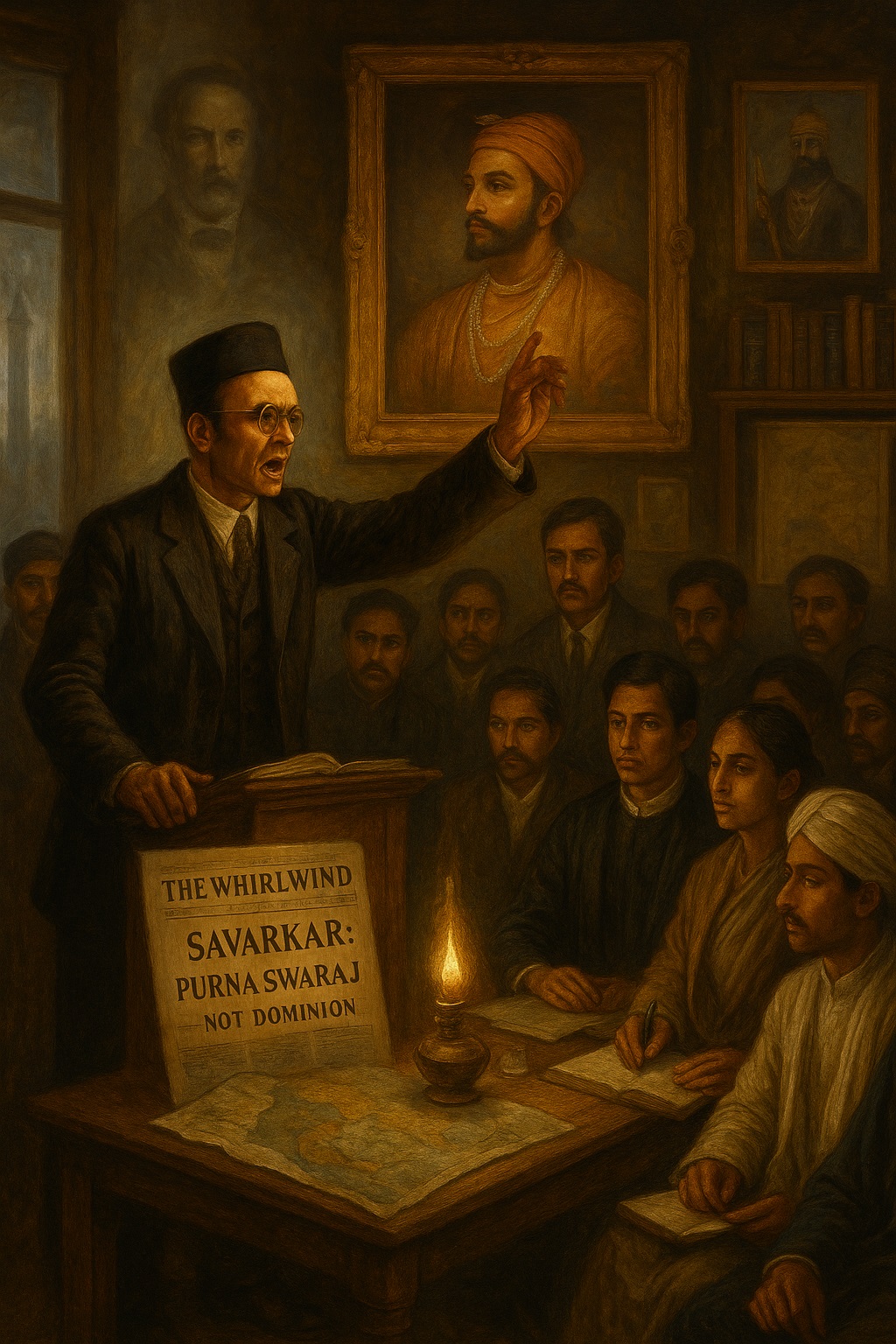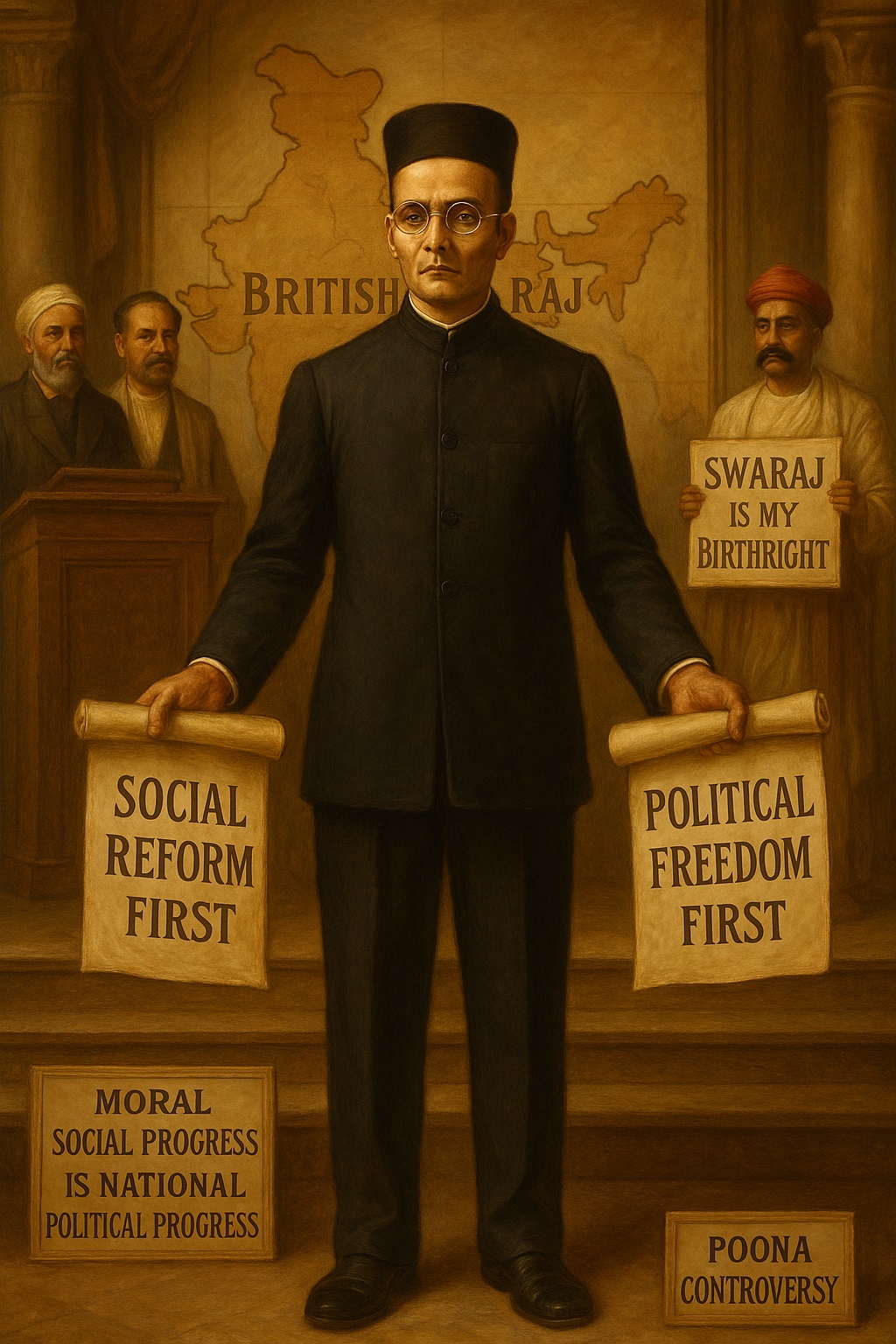Tag: INC
-
In the history of India’s Swadeshi movement, it was Vinayak Damodar (Veer) Savarkar, not ‘Mahatma’ Gandhi, who first organized a public bonfire of foreign goods. A fact which gets often sidelined or ignored by ‘biased INC’ historians. In 1905, when he was in his early twenties, Vinayak Damodar (Veer) Savarkar became a passionate student leader…
-
Every year on October 2, India observes Gandhi Jayanti, the birth anniversary of Mohandas Karamchand Gandhi—revered as the Mahatma and remembered worldwide as an apostle of non-violence. Yet this day also invites a provocative question: if Vinayak Damodar (Veer) Savarkar were alive today, would he have commemorated Gandhi Jayanti? Respect Without Reverence It is conceivable…
-
Every year, 7 September is observed as Vande Mataram Day, commemorating the pivotal role of this iconic song in India’s struggle for independence. The date recalls the decision of the Indian National Congress (INC) in 1905 to adopt Vande Mataram at the height of the Swadeshi Movement against the Partition of Bengal. More than a…
-
Independence Shadowed by Tragedy The Partition of India in 1947 was more than the birth of two nations — it was one of the largest human tragedies in recorded history. While millions celebrated independence, millions more faced death, displacement, and devastation. Few foresaw the coming storm as clearly as Vinayak Damodar (Veer) Savarkar. For years,…
-
In 1899, deep within the narrow lanes of Tilbhandeshwar, a sixteen-year-old schoolboy named Vinayak Damodar (Veer) Savarkar was quietly rewriting the script of India’s freedom struggle. While the Indian National Congress (INC) still pursued petitions and reform, Savarkar envisioned something far more daring — a secret society devoted to armed revolution. That vision took shape…
-
In the closing years of the 19th century, when the Indian National Congress (INC) still placed its hopes in petitions and polite appeals, a young man from Chinchwad near Pune took a radically different path. Damodar Hari Chapekar became one of the first Indians in modern history to take up arms against British colonial authority…

